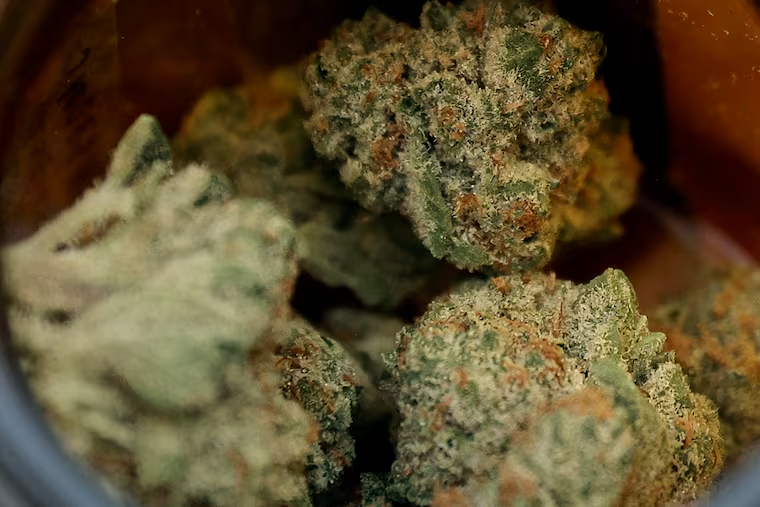Pa. pot law that could shield banks from prosecution awaits Wolf’s signature
Banks, credit unions, and insurers would be protected against state prosecution for doing business with legitimate cannabis companies in Pa. under a bill that awaits Gov. Tom Wolf’s signature.

Banks, credit unions, and insurers would be protected against state prosecution for doing business with legitimate cannabis companies in Pennsylvania under a bill that awaits Gov. Tom Wolf’s signature.
Wolf’s spokesperson Elizabeth Rementer said Wednesday that the governor was “considering the bill.”
The governor has backed recreational use of marijuana and industry experts said he was expected to sign House Bill 331, which was passed by the state House and amended by the Senate. It allows financial institutions and insurers to deal with cannabis companies without fear of prosecution by state law enforcement authorities.
» READ MORE: What to know about buying legal N.J. marijuana if you live in Pennsylvania
Pot is a Schedule I substance under the federal Controlled Substances Act, which means it is considered to have high potential for abuse and therefore is illegal. That will likely keep big credit card companies out of marijuana dispensaries until companion federal legislation is adopted.
The federal Secure and Fair Enforcement Banking Act, commonly known as the SAFE Banking Act, is targeted to address the marijuana issue but has been stalled in Congress.
The state legislation was expected to increase the number of businesses serving the cannabis industry and to move cash into the safety of the banking system while opening the doors for cannabis operators to seek out bank loans, lines of credit, and other financial services, said Jordan Grant, director of government relations at the Pennsylvania Association of Community Bankers, a Harrisburg-based trade group.
» READ MORE: How do Philly’s marijuana laws work?
Pennsylvania's medical marijuana industry is dominated by big operators, which has been partly blamed on the difficulties of raising capital by smaller outfits.
“Legal cannabis companies do not have access to banks or the insurance market the way other businesses do,” said Michael H. Sampson, coleader of the Cannabis Industry Group at the Pittsburgh law offices of Leech Tishman Fuscaldo & Lampl.
"Many banks right now don't want to do business with cannabis businesses because of federal anti-money laundering and other laws."
Federal laws against pot have made marijuana — legal for recreational use in 19 states and for medical uses in 37 more states and the District of Columbia — almost entirely a cash business. Thieves have caught on in recent years and dispensary robberies have risen.
As of May 3, for example, there had been 84 armed robberies of cannabis stores in Washington state, which included the shooting death of one clerk, according to the Spokane Journal of Business. Meredith Buettner, executive director of the Pennsylvania Cannabis Coalition, a Harrisburg-based trade group, praised passage of the Pennsylvania bill, adding that she wasn't aware of a similar spike in Pennsylvania dispensary robberies.
“As an industry, we’re thrilled,” Buettner said. “It certainly will allow more businesses to do business with cannabis companies in the commonwealth.”
The law would protect businesses from prosecution only of state laws against dealing with marijuana companies; prosecution under federal statutes may still be possible, Sampson said.
"It's only going to affect the commonwealth from taking adverse action," he said. "Even after passage, the bank still may not be safe from the possibility of federal prosecution or interference."
In Pennsylvania, a doctor can prescribe marijuana for 23 medical conditions, including chronic pain, nausea, and multiple sclerosis. More than 633,000 patients and caregivers have received marijuana cards in the state, which allow purchases at dispensaries.